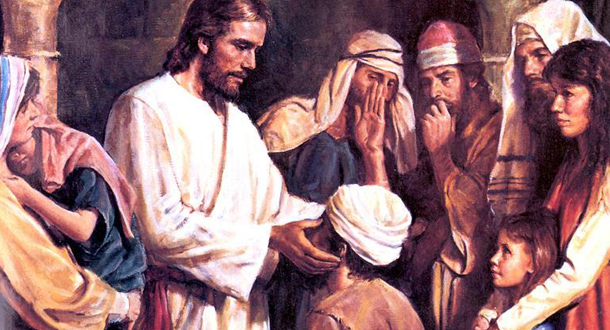
Scripture:
Reflection:
What does the Kingdom of God look like? Today’s gospel tells us – or better, it shows us. “Jesus was driving out a demon that was mute, and when the demon had gone out, the mute man spoke, and the crowds were amazed.”
This exorcism led to a debate among the crowd: How did Jesus accomplish this wonder? Some rejected Jesus. Beelzebub, the prince of darkness, or literally “Lord of the Flies,” must be the power behind Jesus’ healing. In other words, demonic powers control Jesus, and therefore his healing is evil. Others took a wait and see attitude. We want more proof, they demanded. More miracles might persuade them.
These two possibilities – reject Jesus or give more proof – summarize the reaction of many in the crowd, and of many even today.
Jesus took these arguments to their absurd conclusion. If Jesus casts out demons by Satan’s hand, then by whose power do their own followers cast out demons? Did they really want to degrade the activity of their own exorcists by such logic? They were stuck in a dilemma. “Every kingdom divided against itself will be laid waste and house will fall against house,” he argued.
Then Jesus offered another alternative, one he unveiled with dramatic flourish. “But if it is by the finger of God that I drive out demons,” he said, “then the Kingdom of God has come upon you.” Jesus is telling the crowd – and us – that his exorcism was not meant to astound, or amaze, or even to give proof of the existence of God. No. This and all the wonders he performs are testimony, evidence of the arrival of God’s promised, redemptive rule. In Jesus, the Kingdom has arrived. God is breaking peacefully into this creation through Jesus to reclaim humanity from Satan’s mute grip. Jesus’ exorcism was loaded with theological meaning. Satan’s power is the power to make mute, to silence. But Jesus’ power is the power to exorcise us from Satan’s silence so that we might boldly proclaim that the Kingdom is at hand.
In this struggle between demonic silence and the proclamation of the Good News there is no neutral territory, no Switzerland. “Whoever is not with me is against me, and whoever does not gather with me, scatters.” Jesus rejects fence-straddlers. He warns us that lukewarm neutrality is equivalent to opposition to him.
Today’s gospel should remind us of the memorable remarks made by Nazi Holocaust survivor Elie Wiesel. “We must take sides,” Wiesel declared. “Neutrality helps the oppressor, never the victim. Silence encourages the tormentor, never the tormented. Sometimes we must interfere.” To remain mute in the face of injustice, poverty, and discrimination is to be complicit with the forces of darkness. He summons us to interfere, to speak out on the side of the oppressed, the victim, the tormented. Lent is a time to make a choice, to ultimately surrender to the Love of God. The Kingdom of God looks like that.
Deacon Manuel Valencia is on the staff at Mater Dolorosa Passionist Retreat Center, Sierra Madre, California.
